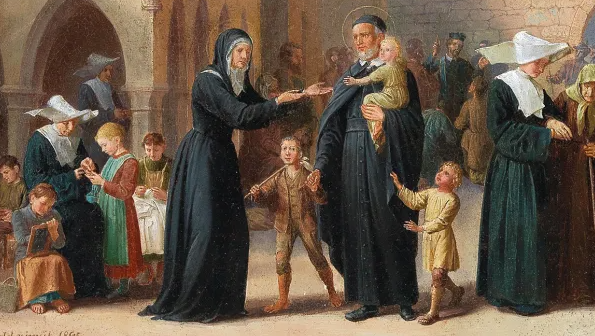Saint Vincent de Paul: Model of Charity
Saint Vincent de Paul remains an enduring symbol of charity and compassion. In a world where many face ongoing challenges, his life offers timeless lessons in selflessness and service to those in need. Understanding his contributions not only inspires individuals to give back but also shines a light on the importance of community support.
The Life and Legacy of Saint Vincent de Paul
Born in 1581, Saint Vincent de Paul dedicated his life to helping the impoverished and marginalized. Initially a priest, he became aware of the immense suffering in his community and felt a profound responsibility to take action. His journey led him to establish various organizations, including the Congregation of the Mission and the Daughters of Charity, which still operate today. Vincent’s initiatives were groundbreaking; he emphasized the importance of both spiritual and material support, demonstrating that caring goes beyond mere charity to include dignity and respect for every individual.
Principles of Charity and Service
Saint Vincent de Paul’s approach to charity was built on key principles that continue to resonate. First and foremost is the idea of compassion; he taught that empathy should drive charitable actions. This means truly understanding the struggles of those in need rather than offering superficial support. Additionally, collaboration was pivotal in Vincent’s work; he often worked with communities to create solutions tailored to their unique challenges. In an age where individualism is prevalent, his model encourages people to come together, demonstrating that collective efforts amplify the impact of charity.
Inspiration for Modern Day Philanthropy
Saint Vincent de Paul’s legacy inspires countless individuals and organizations around the world. His philosophy encourages a hands-on approach to service, urging people to engage directly with their communities. Many charities today echo his commitment to not just providing aid but building relationships with those they serve. His life’s work reminds us that effective charity requires understanding the root causes of poverty and inequality, guiding contemporary discussions around social justice and community engagement.
As we reflect on his teachings, we can adopt his values in our lives, whether through volunteering, donating, or simply advocating for those in need. By embodying the spirit of Saint Vincent de Paul, we can create a ripple effect of kindness and support in our communities.
In conclusion, Saint Vincent de Paul serves as a timeless model of charity, emphasizing compassion, collaboration, and meaningful engagement. His lessons remain relevant, encouraging each of us to take action, however small, in making the world a better place. Let us explore ways we can contribute to our communities and keep the spirit of Saint Vincent alive in our actions.

